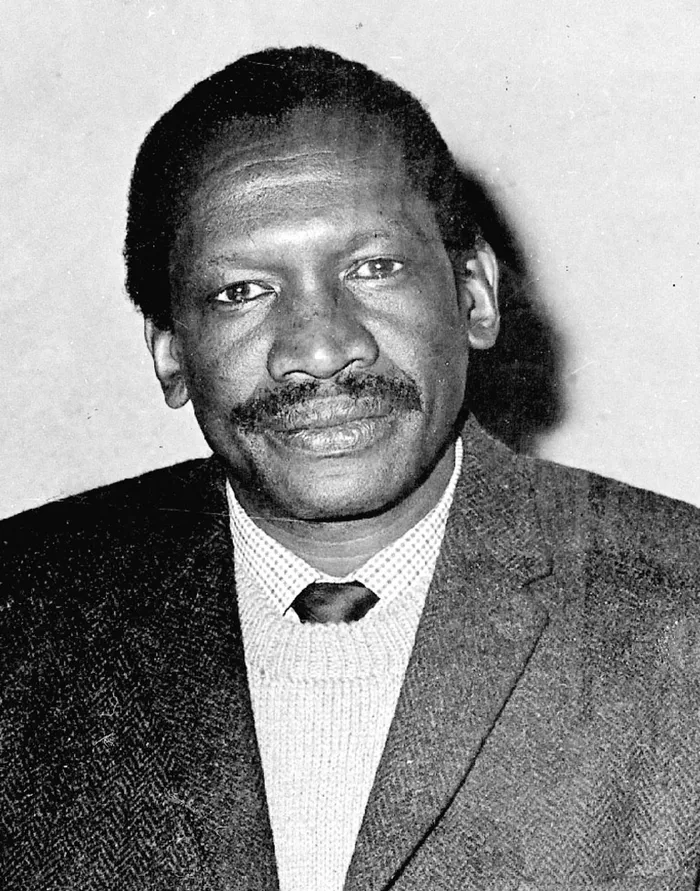
PAC founder Robert Sobukwe File picture: Independent Media PAC founder Robert Sobukwe File picture: Independent Media
Sharpeville Day, March 21, 1960 should be a reminder of numerous similar struggles. This is some part of history that refuses to die.
Many have stated that the Sharpeville incident was one of the turning points in the history of the liberation Struggle. When the Sharpeville township was started in 1942, it was meant to accommodate the overflowing Top Location. Nobody knew that less than two decades later this “model township” would explode and embarrass the racist apartheid government.
In front of the police station, bullets riddled the backs of fleeing and unarmed women and men who had come to protest against the pass laws and other unjust practices. Numerous challenges had also arisen in the “model township”, which until 1960 was fairly quiet compared with other townships around the Rand.
Many problems that arose in Sharpeville five decades ago have resurfaced and include landlessness and homelessness. The pass laws prevented many from finding jobs in the Rand.
Robert Sobukwe and colleagues believed that the nationalist Struggle should be guided and owned by Africans. This Sharpeville Day we need to think of the sacrifices of the Sharpeville and Langa people who braved apartheid’s sanguine artillery like many before and after 1960. The struggle for human rights continues today. The Pass Law is no longer there but new and maybe equally frustrating challenges have surfaced. We still need the bravery of the people of Sharpeville and Langa who dared to stand for their right to be humans with dignity.
Read:
We need a humanising education that liberates in our schools and we have a right to stand for schools where no child will die in a pit latrine when she has gone for education, a basic right. People should stand up for land, for they cannot be roaming landless in their country of birth. People still need to stand up against corruption in government and all public institutions. Each Sharpeville Day we should remember Sobukwe and his African dream.
We witnessed a number of human rights violations in the past few months. The Life Esidimeni case demonstrated how psychiatric patients were treated by callous, unsympathetic structures of our society. Many died and were buried like paupers. We heard tales of how they were dehumanised as they were moved from one pillar to that other post. We live in a society that disregards the poor and many victims of injustice tend to be black. People find themselves fighting for human dignity and other basic rights.
It is also saddening to expose children to more of these indignities. Our children continue to cry out for rights from a young age and society does not always listen to its young. Yet we are surprised by the wayward ways of the children when they grow older.
Two little girls from AB Xuma Primary were violated by a man of the law who was supposed to help them. Molested first by a scholar patroller last year, the young girls were last week violated by an adult who represented the law, who was supposed to safeguard their rights. There are numerous similar incidents where society is failing young children. It is criminal to grab basic rights from young citizens whose life should breathe renewal and hope to our society. It cannot be right to kill a teen who “had stolen” sunflower seeds as was the case by two farmers in Coligny.
Also read:
Poor families struggle with fewer rights in a brutal society. Poverty becomes a perpetual punishment. The poor are punished and are failed by various components of society. The law is usually uncaring when you are indigent. Unscrupulous religious sects prey on the poor using their vulnerability by promising them heaven and earth as they milk them (of) their money.
The call for decolonisation of education is another call for justice; it is a call to address the historic epistemicide that saw African knowledge marginalised and obfuscated by Western knowledge. The call for decolonisation of educational institutions is a call to ensure that African knowledges are presented on an equal level with the rest of the ecology of knowledges. Decolonisation is also about respect and dignity of the African.
As long as African universities fail to decolonise, for example, we will continue perpetuating injustices in African institutions. In a speech at Fort Hare the young Mangaliso Sobukwe called for African universities to lead in African thought.
It is a pity that Sobukwe’s perspicacity is dimly remembered even by those who profess to swear by his name. Annually one witnesses lacklustre events in his name that paradoxically sound a death knell to his memory. With debates around pan-Africanism and decolonisation his name should ring in corridors, in households and in dongas. His dream of a free Africa was a dream of justice and freedom. He belonged to Africa and the world. As we celebrate this day, our speech should be unequivocal - Remember Sobukwe! Sobukwe pointed out that “Africa and humanity are inseparable”.
* Msila is a director at Unisa’s Change Management Unit and writes in his personal capacity.
** The views expressed here are not necessarily those of Independent Media.
